A bigger picture
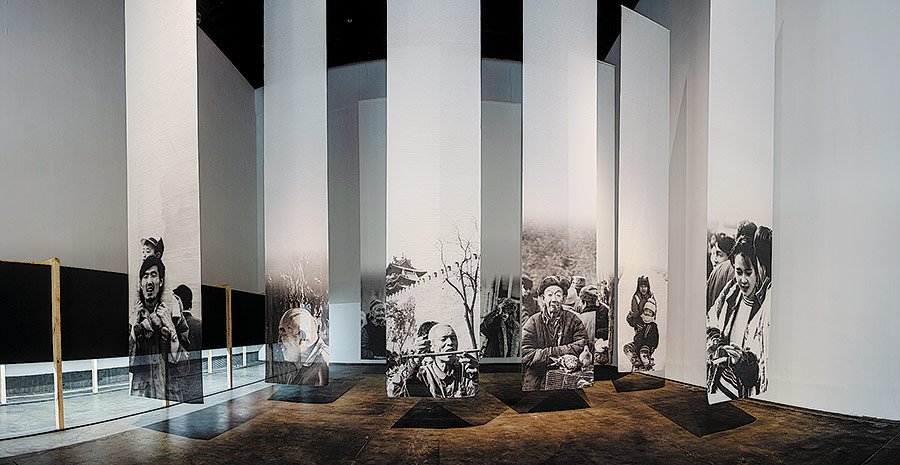
A view of World in a Grain of Sand, an exhibition of veteran photographer Zhu Xianmin's photos, expected to be held in Yinchuan, Ningxia Hui autonomous region, later this month, and to run until June. [Photo provided to China Daily]
Photographer's images focus on everyday scenes with unique perspectives as he seeks to 'detect the truth in life', Lin Qi reports.
More than 60 years ago, a 16-year-old boy arrived at a photo shop in Fushun, Liaoning province. The teenager, Zhu Xianmin, came from an underdeveloped village by the Yellow River in Shandong province.
The eldest of six children, Zhu finished middle school but the family could not provide for his higher education. He took an apprenticeship at the photo shop because "photography was considered a respectable profession in my hometown", Zhu recalls.
Decades later, that boy is now one of China's most influential photographers and a trailblazer in establishing a candid style of documentary work. Zooming in on aspects of ordinary people's lives, and laced with deep compassion and respect, his pictures resonate with the viewers and have been widely exhibited and collected.
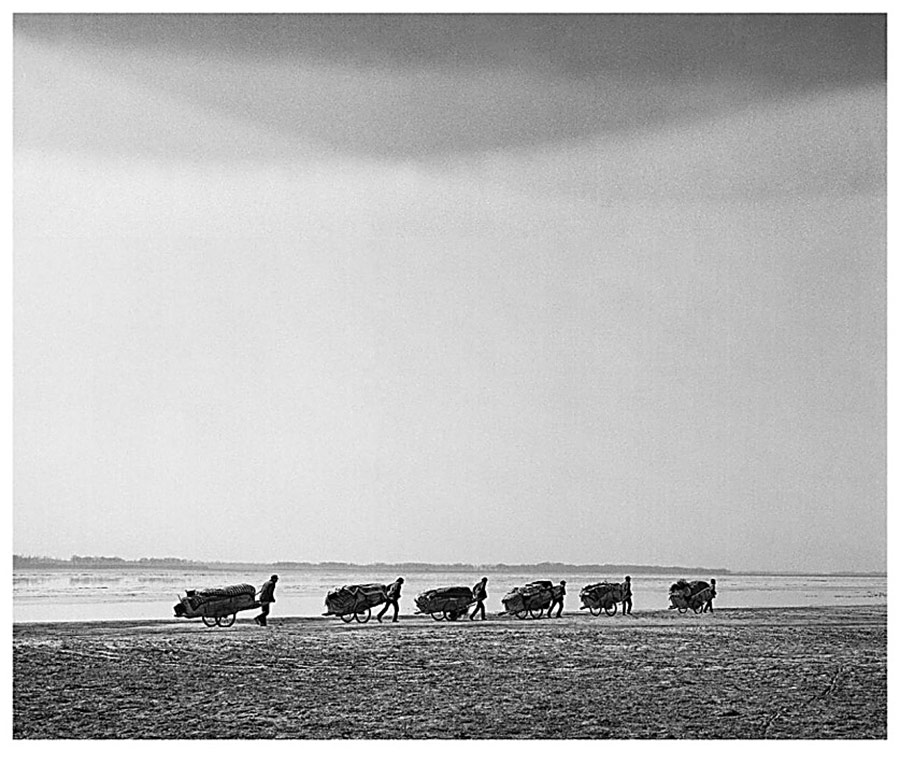
Zhu Xianmin's photo, titled Coal Trailers on the Bank of Yellow River. [Photo provided to China Daily]
Late French photographer Henri Cartier-Bresson, after seeing Zhu's works, said to him, "you have eyes that can detect the truth in life".
Zhu, now aged 79, has captured images which are viewed by peers and critics as the pictorial epics of people at the grassroots level, revealing the ups and downs of time in a natural, sincere manner.
World in a Grain of Sand, an exhibition to review Zhu's career and work over the past five decades, will open at the Museum of Contemporary Art Yinchuan, in Ningxia Hui autonomous region, later this month and will run through June.
On show will be pictures depicting people living along the Yellow River, the country's second-longest waterway, and in the expanse of Northwest China. Dating back to the 1970s, they feature people and places that he has continued to photograph regularly, and are representative of the work for which he is most widely acclaimed.
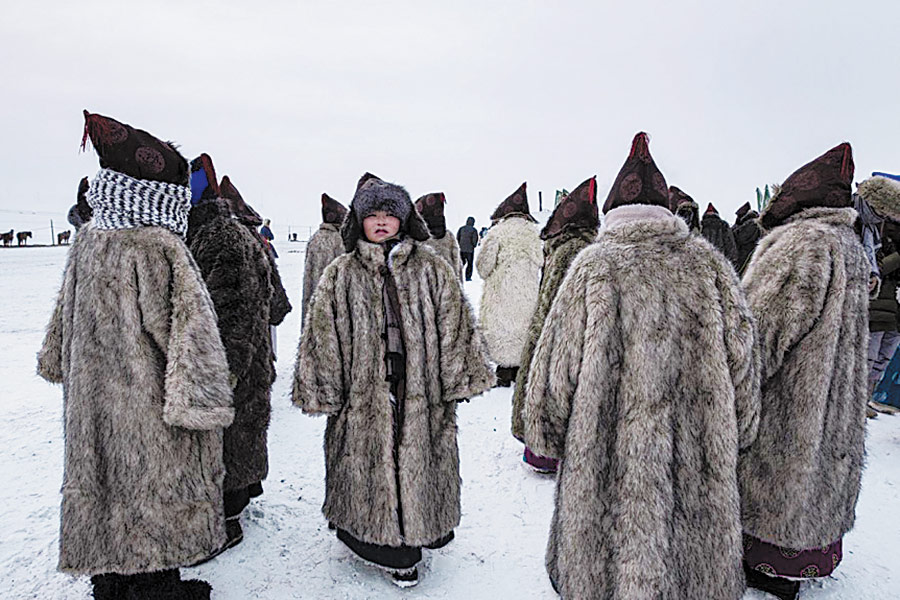
Grassland People. [Photo provided to China Daily]
In his imposing works, Zhu presents a collective image of Chinese farmers to reflect the dramatic changes in their living environment, the influence of urbanization and the country's course of poverty elimination.
"I was raised there (a village along the Yellow River). They (people in the photos) are my father's generation, my brothers and sisters. My emotions, and attachment to them, come naturally," Zhu says.
After four years at the photo shop, Zhu enrolled in a theater arts school in Changchun, Jilin province, to study stage art and photography. He also earned an internship at the prestigious Changchun Film Studio.
Zhu vividly recalls the moment when Yu Zhuming, a noted photographer and one of his mentors at the studio, pointed out that his photos were wanting in perspective and thought. "I was stunned," Zhu says. "I have remembered his words until today, reminding me that I always need to find a unique angle if I want to capture something different from others."
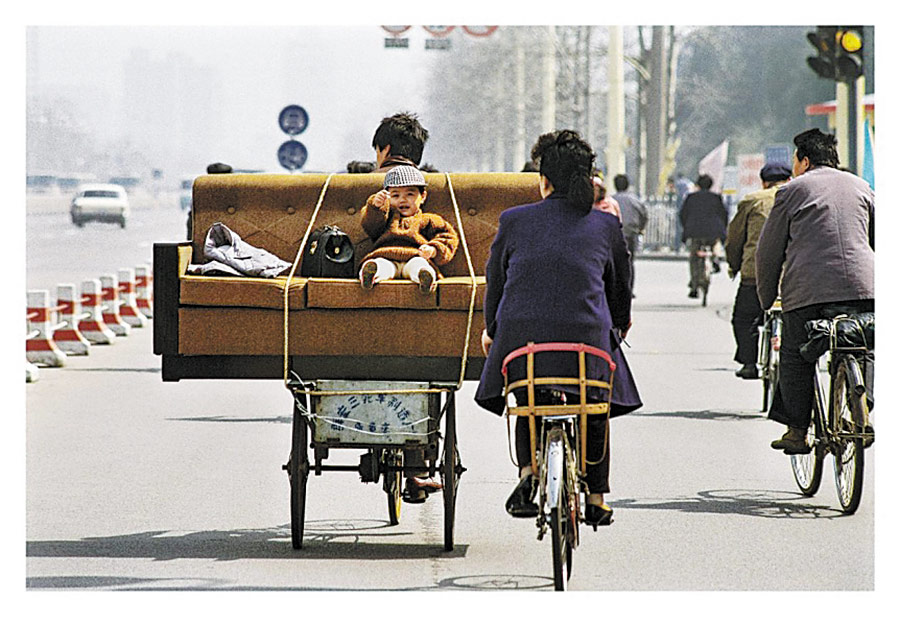
Buying Sofa. [Photo provided to China Daily]
In the 1970s, Zhu became an editor of a photography magazine in Beijing and was introduced to the works of internationally renowned photographers. He began to form his style of approaching subjects in a more candid manner, with a focus on the scenery and people he had been familiar with in his childhood.
Zhu says when he left home to look for a better life, he told himself that he would return one day. Through his lens, the viewer can see the trailers carrying coal, villagers working on construction sites and women selling peanuts along the banks of the Yellow River.
Li Shufeng, deputy director of the Chinese National Academy of Arts, says that Zhu's works preserve the lives of rural people in detail-the way they walked, what they wore and ate, their tools and skills in the farm work, their worries and pleasures-and that Zhu's work shows his long-standing dedication to hailing ordinary people as "the fundamental components of society and makers of history", who cannot be neglected.
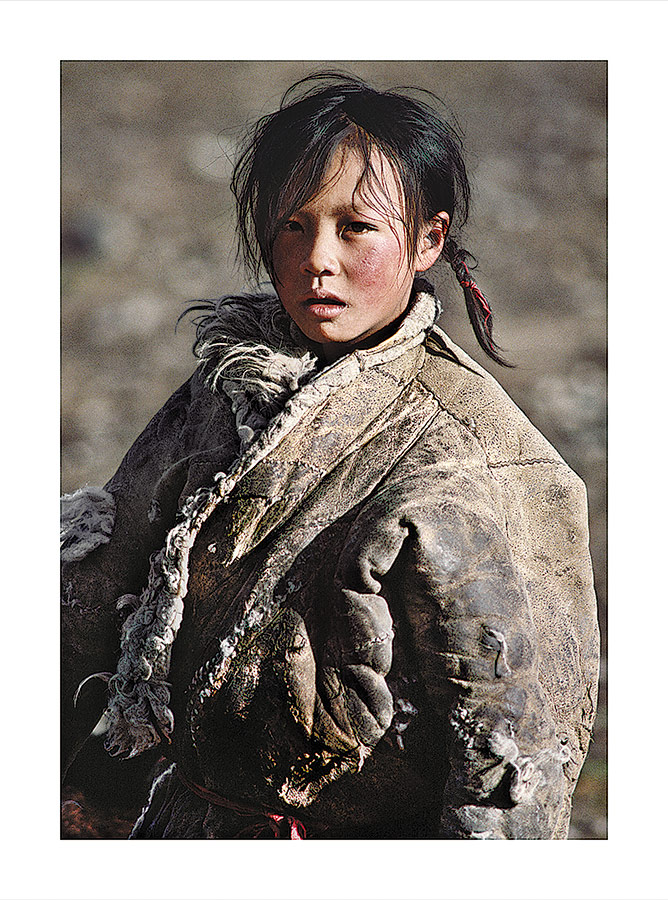
Tibetan Girl in Qinghai. [Photo provided to China Daily]
One of his photos at the exhibition shows the side profile of an aged ferryman on the Yellow River, which Zhu says reminds him of his father, "a kind and industrious man".
"When I left home, my father said to me, 'Don't break the law; don't cheat others'," he explains.
"I'm not an artist, but a faithful reporter of time and history.
"I will keep working as long as I can walk. I want to leave something through which the younger generations will learn about the changes our nation has undergone."
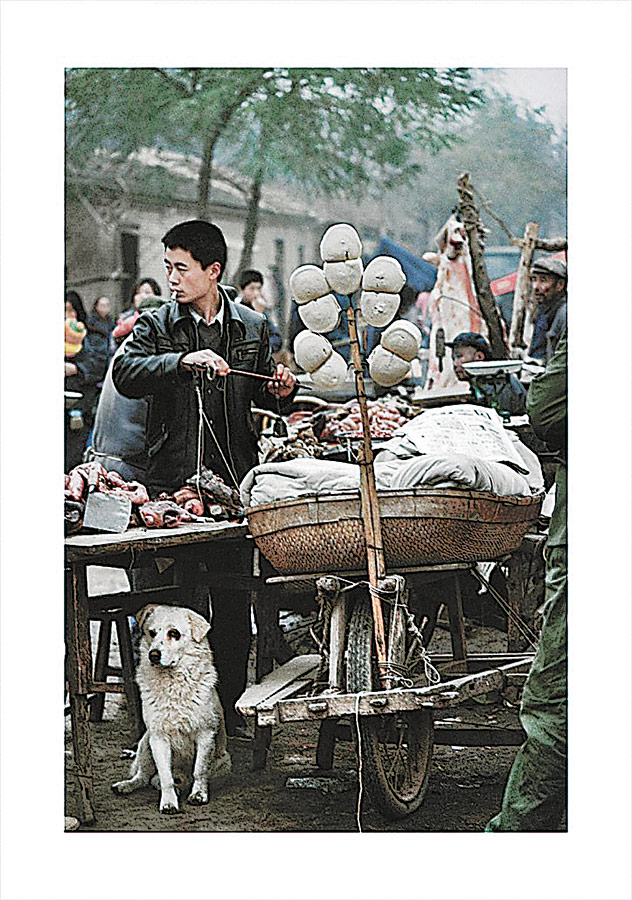
A Street Vendor in Shandong. [Photo provided to China Daily]
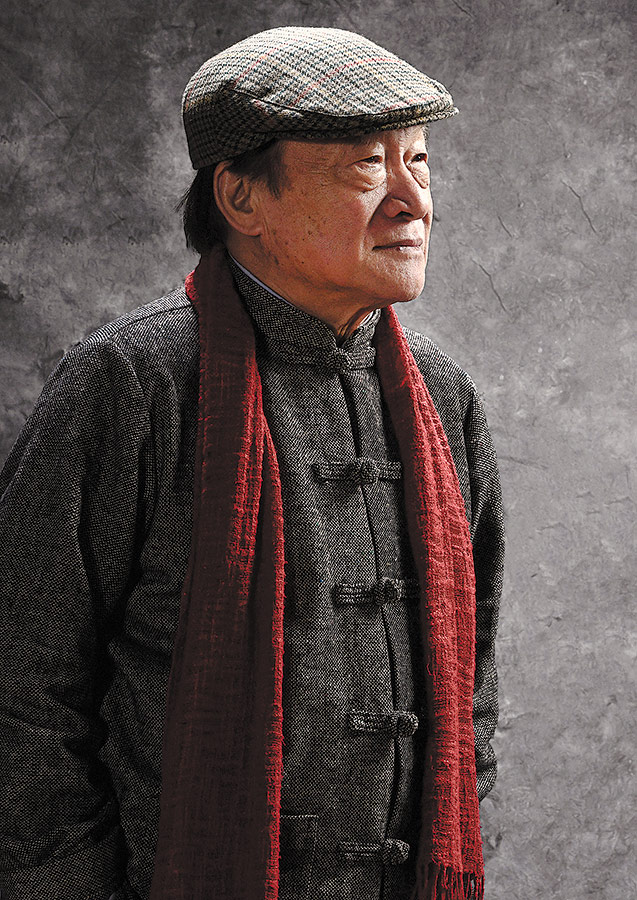
Zhu Xianmin, photographer. [Photo provided to China Daily]

 Yinchuan Wine-producing Area at the eastern foothills of Helan Mountains
Yinchuan Wine-producing Area at the eastern foothills of Helan Mountains A promising Sci & Tech center in NW China
A promising Sci & Tech center in NW China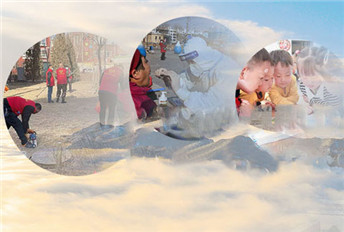 Party building stories in Yinchuan's Xixia district
Party building stories in Yinchuan's Xixia district